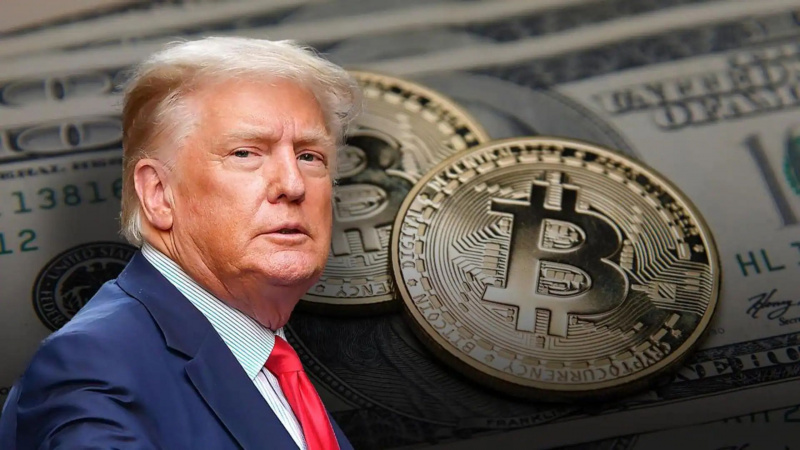Will Trump triumph over the world economy?
It is no mere coincidence that the rapid growth in the global economy which we are witnessing in recent decades and which has eradicated many out of poverty, ha
- by Preetam Banerjee 2019-10-07 07:32:19
Economics cannot be perfected as a science. The followers of economics often tend to disagree over the similar facts. There are a few key issues over which there is very less debate like the benefits of trade.
It is no mere coincidence that the rapid growth in the global economy which we are witnessing in recent decades and which has eradicated many out of poverty, has gone simultaneously with globalization and growth in international trade. Even though the countries like EU and China are nearly the same size in terms of geographical area as the US, Washington is still the invisible puppeteer in the stage of a world economy. However, now under the leadership of Donald Trump, there is a faint hint that steps might be taken to reverse globalization and trade institutions that promote trade might just take a setback. That could have major repercussions for the global economy.
International trade is tricky. It boosts the size of the global economy by helping companies and countries to specialize in their particular skill. Higher trade means higher productivity. In ideal conditions, the confidence that comes from the rising volume of trade encourages higher expenditure on capital investment that enhances productivity. Of course, change does not come smoothly. Although there is a vast majority of workers in the developed world who benefit from globalization through acquiring better goods at lower prices, the subtotal costs to those workers who lose their job in the process are not to be ignored. Governments all over the world need to address the grievances of these dis-satisfied skilled men. However, President Trump’s decision to raise tariffs on trade to try to reduce the US trade deficit somehow reflects economic blunder. Any country’s trade balance does not necessarily show profit or loss. While viewing the US trade deficit as a loss to the country, Trump misses the whole agenda. Benefit from trade is not what a country sells, but what it buys. Exports simply reflect surplus production at the indigenous level.
History stands evidence as back in the 1930s, the US initiated a global trade war with its Smoot-Hawley tariffs, raising almost 900 import duties. When it was the mid-1930s, global trade had reduced to almost half. A policy that was intended to support US domestic industries actually became a boomerang and worsened the Great Depression. If we look at numbers- the currently planned US tariffs which include steel and aluminum are too small to matter for the economic outlook. However, the main issue is how far the process of tit for tat will go on. While other countries will retaliate, it is expected of them to do so in a controlled way. If the house of Congress then prevents Trump from taking the conflict much further, the overall economic damage will be small, with probably no more than a temporary hit to confidence because the Congress seems to be more sensible when it comes to protectionism than the current president. The backlash in Congress against the Trump tariffs probably means the trade row will not escalate to such an extent as to materially damage the ongoing healthy global economic upswing – but frustratingly, it now poses a risk that needs to be watched closely.
POPULAR POSTS
Karnataka Bank Stock Falls Over 5% After CEO, ED Resign — What’s Triggering the Crisis?
by Shan, 2025-07-01 06:27:50
Indian Rupee Rallies to ₹85.50 on Weak US Data, Lower Oil Prices
by Shan, 2025-06-27 09:59:37
Will Iran Shut Down the Strait of Hormuz? What It Means for Global Oil and India’s Economy
by Shan, 2025-06-24 11:59:36
RBI Repo Rate Cut 2025: How Your Home Loan EMIs and Tax Deductions Will Change
by Shan, 2025-06-12 07:11:42
Top Highlights from Bharat's Leading Startup Summit: 21BY72 Season 4
by Shan, 2025-06-10 11:54:08
Have a CTC of Over Rs 17 Lakh? You Can Still Pay Zero Tax – Know How!
by Anmol Chitransh, 2025-02-26 05:58:48
RBI Repo Rate: Decoding the 25bps Cut & Its Impact on Your Finances
by B2B Desk, 2025-02-07 11:28:52

RECENTLY PUBLISHED

Meesho Open-Sources BharatMLStack to Power India’s Next Generation of AI Startups
- by Shan, 2025-07-03 10:59:52

Nothing Phone (3) with Snapdragon 8s Gen 4 & All-50MP Cameras: India Launch Highlights
- by Shan, 2025-07-02 06:51:22

Trump’s Big Beautiful Bill Sparks Crypto Clash in Senate: What’s at Stake for Investors?
- by Shan, 2025-07-01 12:24:17

HAL, BEL & Data Patterns: 3 Defence Stocks Riding India's ₹50,000 Cr Export Ambition
- by Shan, 2025-06-26 10:00:16

$90 Million Crypto Hack at Iran’s Nobitex: Israel-Linked Group Claims Responsibility
- by Shan, 2025-06-26 09:43:52
India GDP Forecast 2025-26 Raised to 6.5% by S&P: Key Drivers & Global Risks Explained
- by Shan, 2025-06-26 10:30:46





 Subscribe now
Subscribe now 